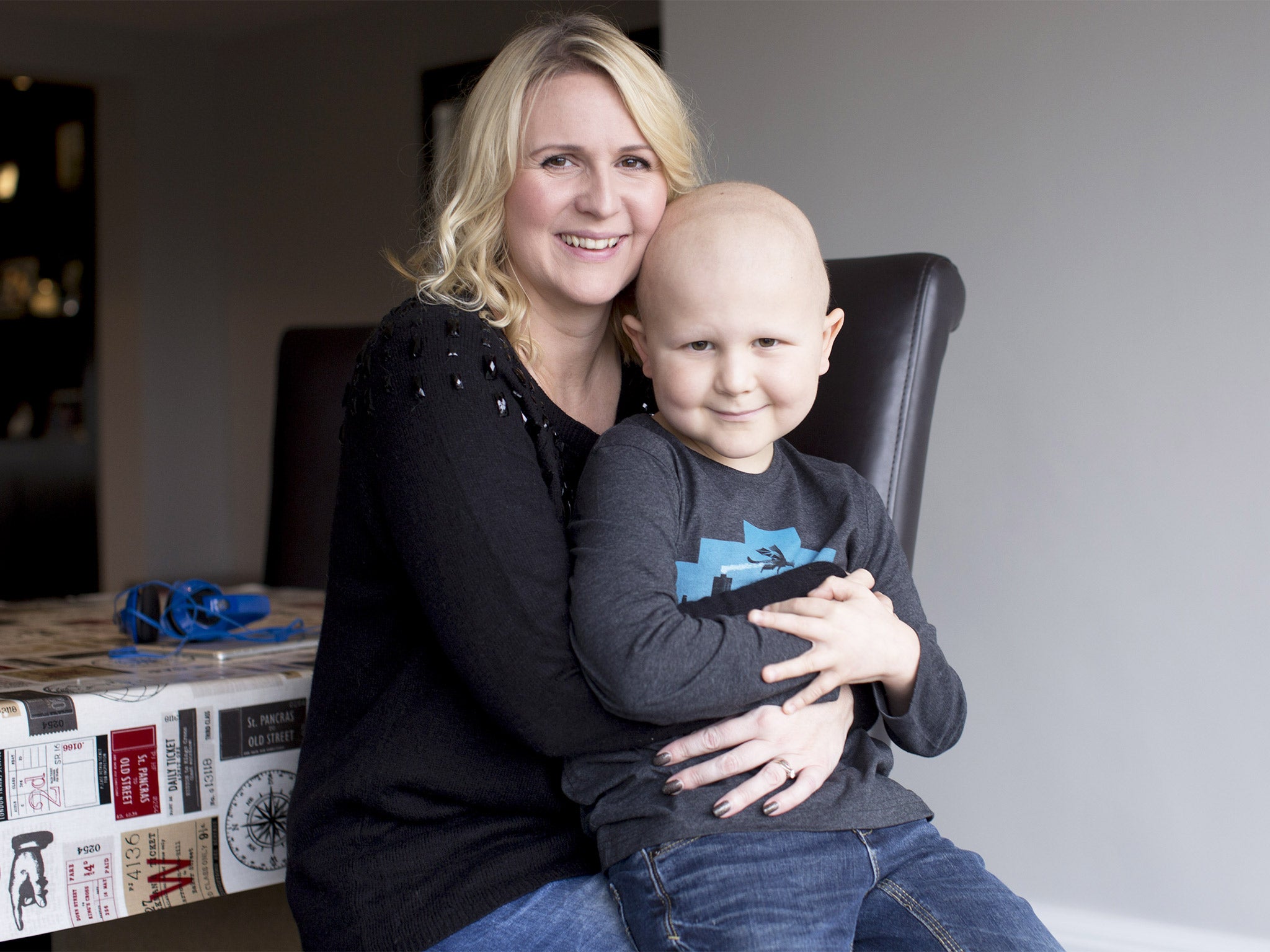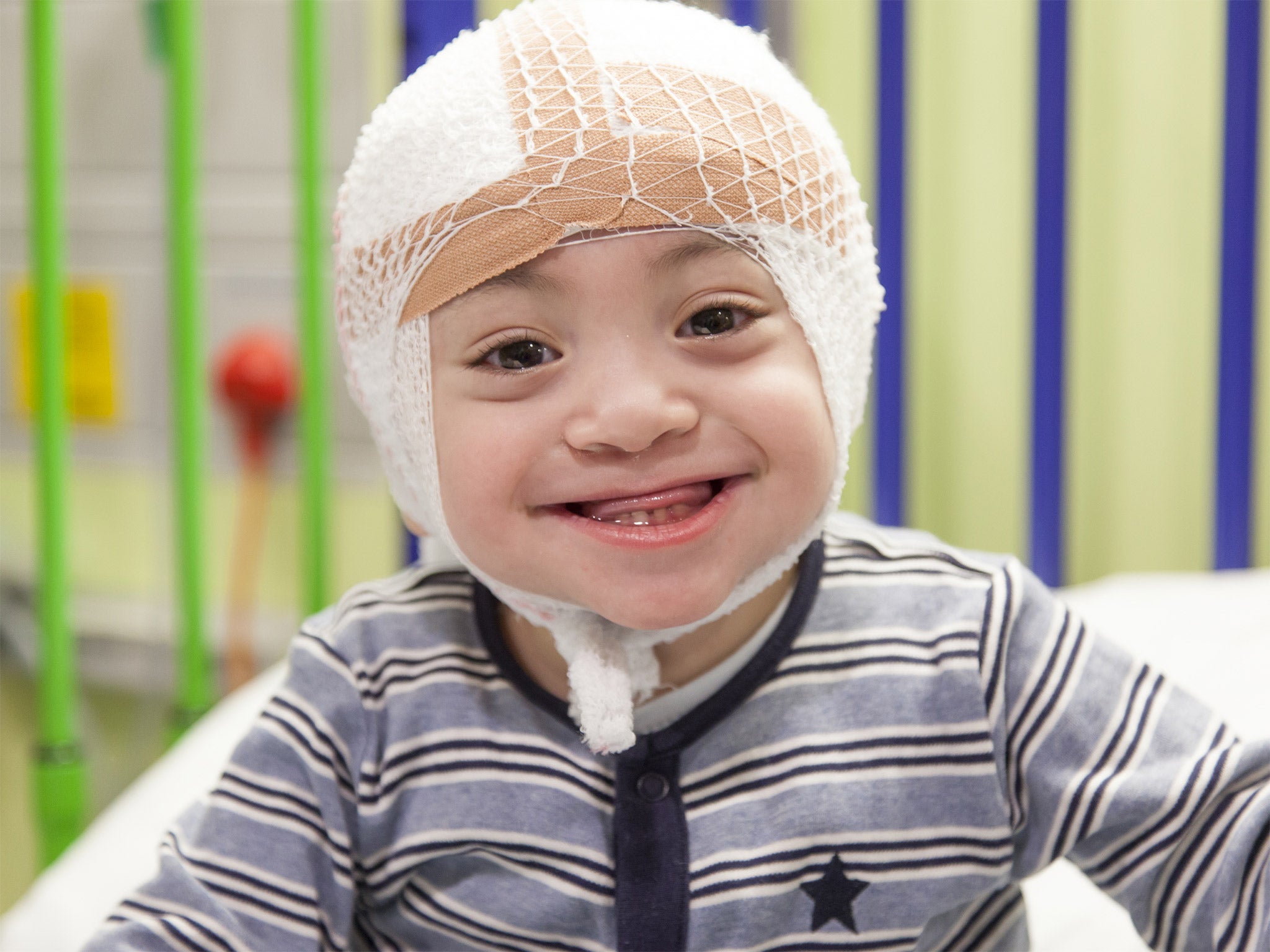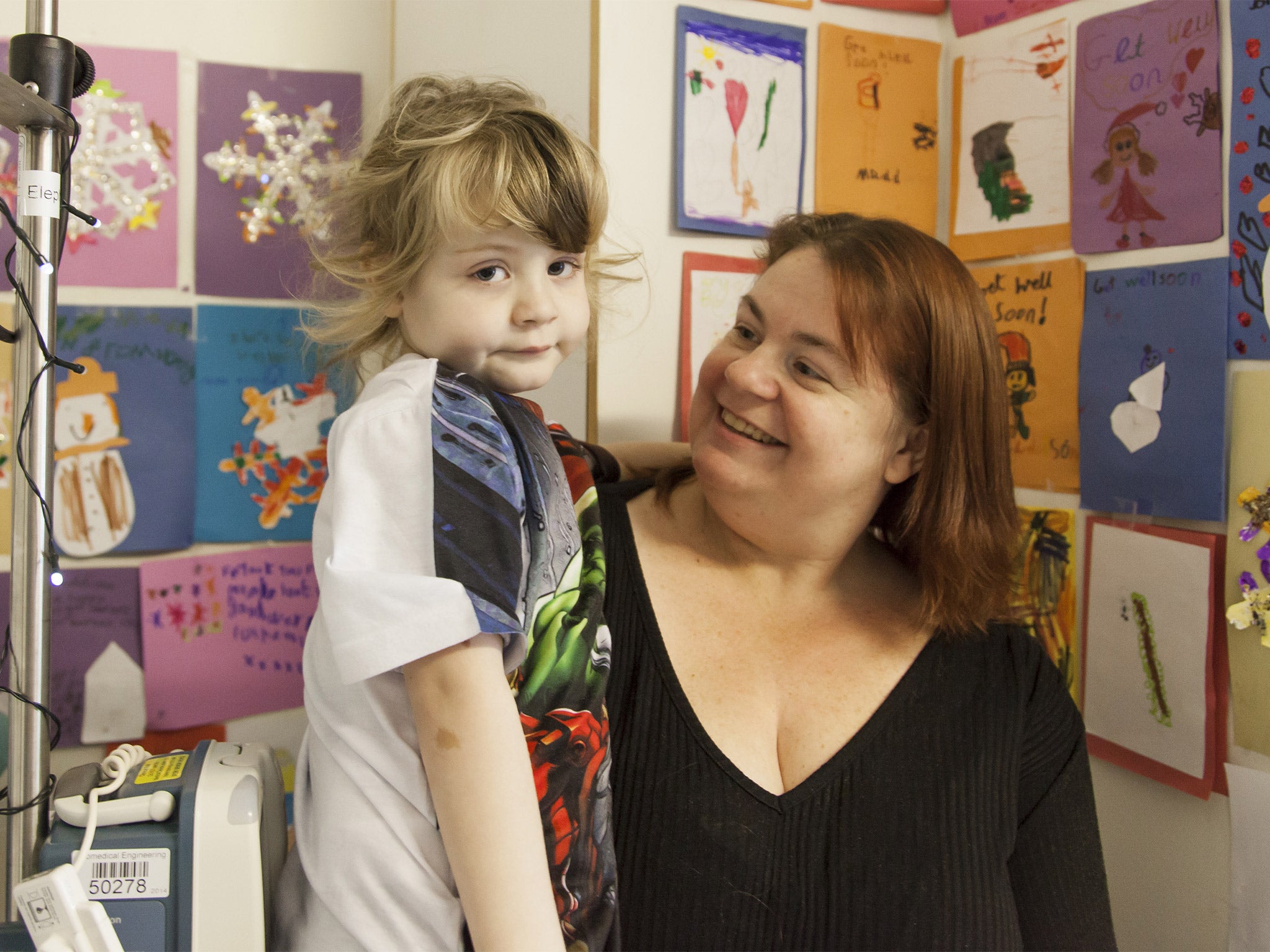Give to GOSH: Every penny donated will help improve patients' lives
We will work hard to ensure that every penny you have donated is put to the best possible use, improving the lives of our patients and their families

Your support helps us to tell the story
From reproductive rights to climate change to Big Tech, The Independent is on the ground when the story is developing. Whether it's investigating the financials of Elon Musk's pro-Trump PAC or producing our latest documentary, 'The A Word', which shines a light on the American women fighting for reproductive rights, we know how important it is to parse out the facts from the messaging.
At such a critical moment in US history, we need reporters on the ground. Your donation allows us to keep sending journalists to speak to both sides of the story.
The Independent is trusted by Americans across the entire political spectrum. And unlike many other quality news outlets, we choose not to lock Americans out of our reporting and analysis with paywalls. We believe quality journalism should be available to everyone, paid for by those who can afford it.
Your support makes all the difference.The special place Great Ormond Street Hospital occupies in the country’s consciousness has been demonstrated by the reaction to this newspaper’s appeal. We are so grateful for your support, and over the next year we will work hard to ensure that every penny you have donated is put to the best possible use, improving the lives of our patients and their families.
Part of the focus of this appeal has been the Louis Dundas Centre for Children’s Palliative Care. As a clinician the most difficult conversations I had were with parents where I told them in the simplest of terms that their child was going to die. Those words were exchanged in a privileged and sacred space that as a physician I came to as a respectful visitor, but a space in which parents must live. In the face of their humbling strength and courage, I hoped that respect and compassion had made a small difference to a situation where no parent should find themselves.
My hope for 2016 is that our clinical teams occupy less and less of this space with our families. For many of our children and their families, who have exhausted treatment options in other hospitals, research breakthroughs are their only hope. This year I would like us to enrol many more of our patients on to research studies and for a greater number of pioneering treatments to be introduced – treatments like the gene therapy you have read about in this paper.
Thanks to this, one-year-old Layla Richards was able to receive ground-breaking gene therapy to treat aggressive, “incurable” leukaemia. She is now home and free of cancer. I would like these breakthroughs to be shared with, and built on by, colleagues around the world so that we can help many more children.
Many children who come to GOSH have conditions so rare that they are difficult to diagnose and consequently treat. We are already analysing the DNA of these patients through the national 100,000 Genomes Project. This year I hope that by comparing this detailed information, our scientists and doctors will be able to pinpoint the genetic features that disorders have in common and that children will get a diagnosis for their rare condition much more quickly than we ever thought possible.
In the coming year we at GOSH must support all hospitals around the country that need to send their patients to us for specialist care. This means being able to receive them and work with others to ensure the right package of care when they return to their local hospital or home. One example where we are making room for more patients is in our new specialist heart failure unit, which this appeal is supporting. This much-needed facility is for patients that need specialist cardiac care, including those waiting for precious heart transplants. This year we will be preparing for its opening in 2017.
Finally I would like to ensure that all our staff feel appreciated for all their hard work, dedication and innovation. Every day they wake up, come to work and take on the most difficult of tasks, in some cases being the only face that a very ill child will see that day, and the main source of comfort as well as care for those families. GOSH would not be what it is without the dedication and commitment of its doctors, nurses, healthcare assistants and support staff – nor without the tremendous support of people like all of you. Thank you again.
Dr Peter Steer is chief executive of Great Ormond Street Hospital
Monro Simmonds-Walkes, Essex
For 15-month-old Monro, Christmas meant a visit to Great Ormond Street for an electro-encephalogram to monitor electrical activity in his brain for epilepsy. He was born at 27 weeks and has been in and out of GOSH ever since. His mother, Savannah Simmonds, said: “Monro was born with a hole in his stomach which had to be reversed. He has sleep apnoea and they think he might have epilepsy.”

Eating is a challenge for Monro and his family hopes he will be able to start eating properly in 2016. “Getting the appointment at GOSH means the world to me, I’m so glad he is being treated here. They’re dealing with his sleep apnoea, throat and epilepsy; they’re looking at everything. For next year all I want is to get some results, be able to give him something to eat and see him get better.”
Rowan Pethard, Hemel Hempstead (main image)
The worst of Rowan’s treatment for leukaemia is over. After months of intensive therapy the seven-year-old football-mad boy is home with his family in Hertfordshire.
The future is more positive than this time last year for his mother Abby, though her son still faces up to two years of follow-up treatment to ensure that he is totally free of the disease.
The family hopes that Rowan, who supports Spurs, will soon be well enough to play football again and that the family will be able to go away on holiday.
She said: “I really hope we can get away and enjoy time together as a family, just the four of us. I want to see Rowan doing all the things he hasn’t been able to and enjoy getting back to normal.”

Maddison Webb, Basildon
After nearly four years of treatment for lymphocyte T-cell leukaemia Maddison Webb, five, just wants to go back to school to see her friends. She was first diagnosed and treated in January 2012 but relapsed 18 months later and is now an inpatient at GOSH, where she is waiting to see if she is ready for a bone-marrow transplant. Her mother, Stephanie, said: “We hope she will be going for a transplant in January. No one in the family was a match but they have found someone on the register, so we are very grateful.”
Join our commenting forum
Join thought-provoking conversations, follow other Independent readers and see their replies
Comments